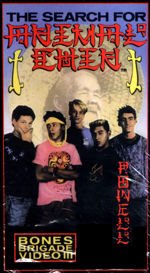100. memento

memento is a good one for this list because its not a great movie, but the clever, precise writing is what makes it stand out. that's not to say the movie isn't good, because it is: the actors do well and are clearly having fun (and there's some cute casting with a switcheroo of the matrix: in this case, carrie anne moss is "bad" and joey pants is "good"), the editing is fantastic, chris nolan knows how to direct and give us a sense of atmosphere. when you stick all those elements together, you're gonna get something fine, but the point is this: this movie wouldn't be what it is if it wasn't written well.
the movie is an inversion of film noir. i was always told in creative writing classes to write in a genre. nolan did this, but he turned everything on its head. lenny is a detective of sorts, but instead of sam spade's competence and ability to get stuff done, leonard flails around knowing nothing, his only aids being his tattoos and natalie's help. natalie, of course, plays the femme fatale role, but as opposed to most of those thankless roles of harpies stuck to their man, natalie loses her man and goes for revenge -- and gets it. joey pants plays the classic nebbish sidekick, but the difference is that he gets killed. finally, as a fun little play on this inversion of noir, nolan shoots the movie (mostly) in color, with ultra-bright california exteriors and overexposed sunlight.
for such an inversion, the structure is appropriate. the movie is played out backwards and in short bursts, closely emulating leonard's condition. the opening is fantastic: we fade in, again emulating leonard's condition, and as the polaroid comes into focus we go into a backwards scene. this is great because it excites the audience as well as gives them something to try to figure out. the rest of the movie is centered around giving the audience pieces of the puzzle and letting us put it together.
and for those of you who have watched this movie and haven't figured it out, here's a key to the movie: everything joey pants says is true. save for when he tells leonard they don't know each other right after leonard kills jimmy, everything he says is true. the basic story line is this: teddy is a cop who is using leonard to help him sting a drug deal. dodd is jimmy's supplier, and jimmy is supposed to sell to teddy, who is undercover. leonard ends up killing jimmy, and dodd finds leonard with all of jimmy's stuff. meanwhile, natalie finds out about leonard, who is dressed like jimmy, so she uses leonard to kill teddy, who she thinks is really responsible for jimmy's death. leonard sort of lets himself be used into killing teddy, because teddy tells him the truth about himself: that he actually is sammy jenkis, and his wife survived the attack but that because of his condition he accidentally tried to kill her and was put in a psyche ward, and probably broke out.
ever since then, since he's an amnesiac, he thinks his wife is gone, and so he is out for revenge. teddy has helped him, and he's killed several people. the ones he kills in the actual movie are just a few of the several he has killed, but he'll never remember, because he burned the pictures.
leonard, then, is the ultimate villan of the movie, a final delicious twist of noir -- the hero is a cold-blooded and willing murderer.


